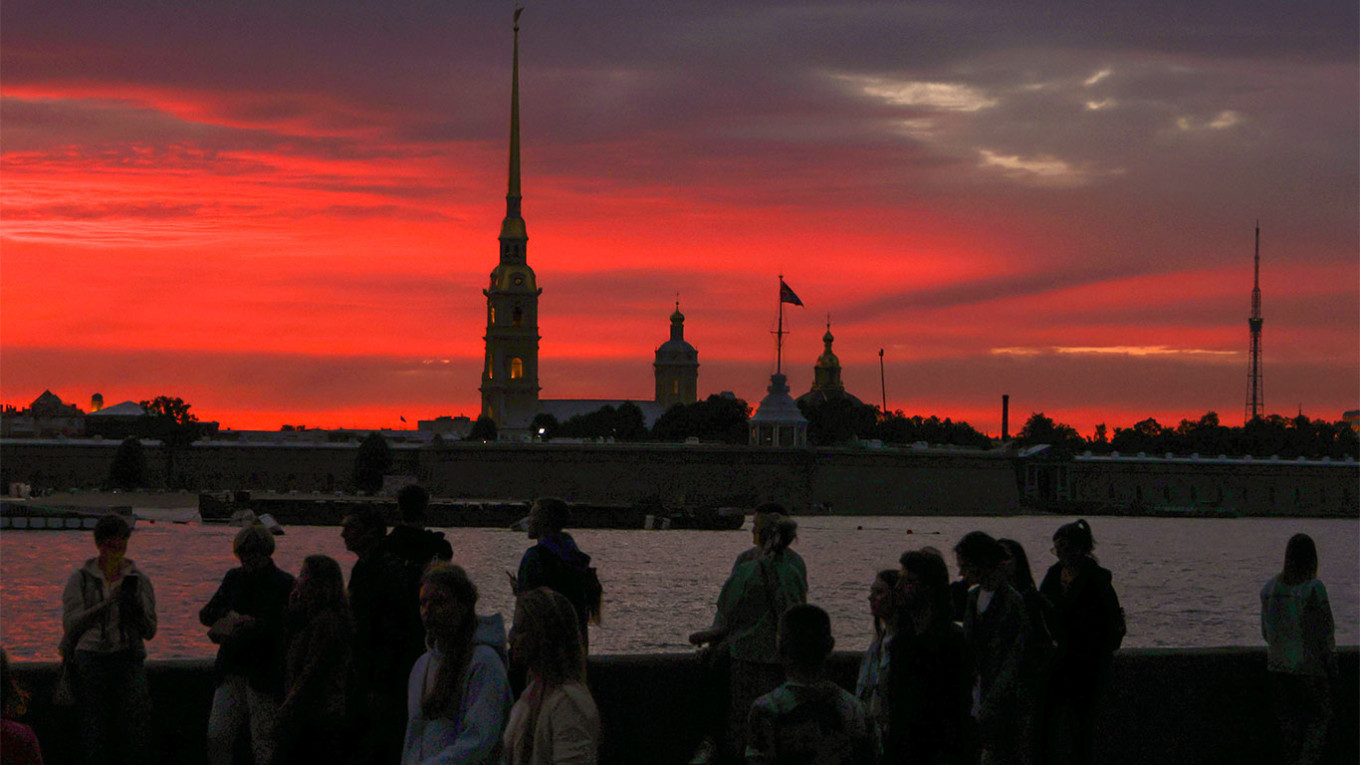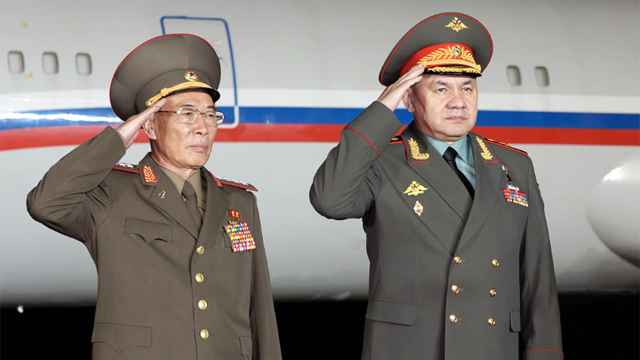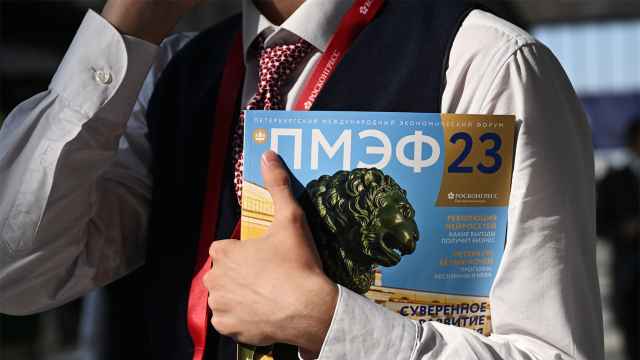St. Petersburg, famously one of the world's most beautiful cities, appears at first sight not to have obviously changed since the war in Ukraine began eight months ago. On closer inspection, though, not everything is quite as it was.
The malls, for example, seem empty with the mass departure of Western brands from Russia, and the cinemas now screen classic movies rather than the latest Hollywood blockbusters. Walking down the city's main thoroughfare, Nevsky Prospekt, the number of empty shop windows with "to rent" signs in them is noticeable, all of which contribute to an atmosphere of emptiness and uncertainty.
Nevertheless, life goes on, and the city still sees a significant number of tourists from other parts of Russia, even in the depths of the city's wet autumn. Petersburg's dining scene is somehow still booming, with new places opening every week, and theatres and concert halls play to full houses, though of course these days only those who haven’t spoken out against the war are allowed to perform.
Insulated by their wealth, Moscow and St. Petersburg will admittedly be the last places in Russia to feel the effects of the war in Ukraine. Nevertheless, food prices have jumped by as much as 40% even here and even though the supermarket shelves are still full, many imported products are no longer available and the price of baby food and hygiene products – never cheap in the first place – have gone through the roof.
Pro-war propaganda can be seen all over the city, with posters bearing slogans such as "we don’t abandon our own" in the metro as well as in all government buildings. There are also billboards all over the city featuring photos of individual Russian soldiers and the slogan "Glory to the heroes!" All police cars now sport the pro-war "Z" symbol and I sometimes see private cars displaying them too, which frightens me.
I haven’t watched Russian state TV since their coverage of the terrorist attack in Beslan 18 years ago, but the stream of propaganda there is relentless – one of the reasons millions of people still support Putin and his invasion of Ukraine. For many, it's easier simply to believe what they're told on TV than attempting to learn the truth. However, many simply don't want to know what's really going on, as it's so devastating and they'd rather not face it.
Fortunately, I am surrounded by like-minded people who see the war as a tragedy and don’t need to argue about it. But I also have friends who no longer talk to their parents who truly believe that the Russian military is "saving" Ukraine from the Nazis and that NATO wants to destroy Russia. They see their children as traitors for not supporting the war. One of my friends was told "if you don’t support your own country, we don’t want to see you at our home anymore."
No one in Russia believed there could be a war, but now it’s crystal clear that the Russian government has been planning it for years. The lives of millions have been changed forever and my country is to blame. Many of my friends feel powerless, and – since mobilization was declared – scared as well.
Every second man I know has now left Russia, is planning to leave Russia or is essentially in hiding because they understand that nobody is safe from the draft. Whenever I see young men in the city, I always want to ask them if they’re safe, if they have a plan, if they'll stay in Russia, if I can help them in any way.
For me, the real heroes are those who refuse to take up arms against their neighbors, those who believe that violence can never be justified under any circumstances, people who know the value of life and decide instead to fight the madness that drives the war machine.
Not a single day goes by without me agonizing about the war and talking to my friends and family about it. My day starts and ends with the news. I can’t imagine what the Ukrainian people are going through, I can’t imagine what Russian women whose husbands and sons are being mobilized are going through.
I don’t want to stop feeling and become indifferent, I don’t want to just get used to it. But I also try to live my life here and now, because you never know what comes next. Life can change in a single moment – just as it did for so many people eight months ago.
A Message from The Moscow Times:
Dear readers,
We are facing unprecedented challenges. Russia's Prosecutor General's Office has designated The Moscow Times as an "undesirable" organization, criminalizing our work and putting our staff at risk of prosecution. This follows our earlier unjust labeling as a "foreign agent."
These actions are direct attempts to silence independent journalism in Russia. The authorities claim our work "discredits the decisions of the Russian leadership." We see things differently: we strive to provide accurate, unbiased reporting on Russia.
We, the journalists of The Moscow Times, refuse to be silenced. But to continue our work, we need your help.
Your support, no matter how small, makes a world of difference. If you can, please support us monthly starting from just $2. It's quick to set up, and every contribution makes a significant impact.
By supporting The Moscow Times, you're defending open, independent journalism in the face of repression. Thank you for standing with us.
Remind me later.






